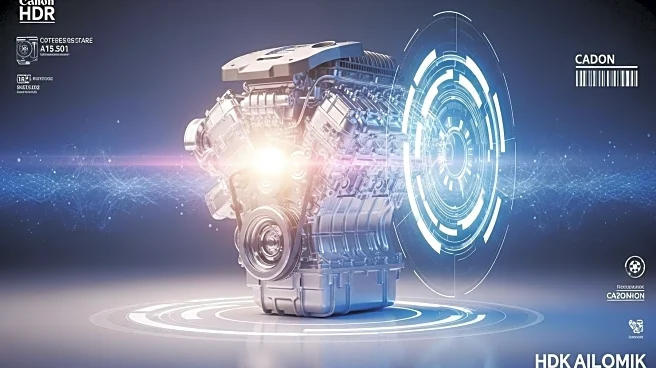What's Happening?
Meta has introduced the Horizon Engine, a new game engine designed to enhance the metaverse experience by offering 'infinite connected spaces, more realistic physics, and higher player counts.' This engine supports various tools such as FMOD for sound, Noesis for UI, and PhysX for physics, and is integrated with Meta's Avatars software. According to Mark Zuckerberg, the engine can support five times as many users and operates four times faster than previous versions. The Horizon Engine aims to provide scalability from cloud to mobile, allowing users to run worlds on mobile devices. It also focuses on speed and performance, ensuring quick loading and operation of worlds. The engine is designed with familiar tools to lower the skill ceiling for developers, facilitating faster production of user-generated content. Meta emphasizes that the platform is built with user safety in mind, aiming to create a technical foundation that evolves alongside its users.
Why It's Important?
The introduction of the Horizon Engine is significant as it represents Meta's continued investment in the metaverse, a virtual space that has been a focal point for the company. By enhancing the scalability, speed, and user-friendliness of the platform, Meta aims to attract more users and developers to create and engage with virtual worlds. This could potentially lead to increased adoption of the metaverse in various sectors, including retail, entertainment, and social interaction. The focus on user safety and platform evolution suggests a long-term commitment to addressing technical debt and improving user experience. As the metaverse becomes more integrated into daily life, businesses and consumers alike stand to benefit from the expanded capabilities and improved performance of the Horizon Engine.
What's Next?
Meta plans to continue developing the Horizon Engine, with a beta sign-up available for interested users. The company has not specified when the beta will be fully accessible, but it is expected to be available later this year. As the engine evolves, Meta will likely focus on further enhancing user experience and expanding the platform's capabilities. Stakeholders, including developers and businesses, may respond by exploring new opportunities within the metaverse, potentially leading to innovative applications and services. The success of the Horizon Engine could influence other tech companies to invest in similar technologies, further driving the growth of the metaverse.
Beyond the Headlines
The development of the Horizon Engine raises questions about the ethical and cultural implications of an increasingly digital lifestyle. As more people engage with virtual worlds, issues such as data privacy, digital addiction, and the impact on real-world social interactions may become more prominent. Additionally, the democratization of content creation tools could empower users but also pose challenges in moderating and ensuring the quality of user-generated content. The long-term success of the metaverse will depend on how well these challenges are addressed, balancing innovation with responsible use.









